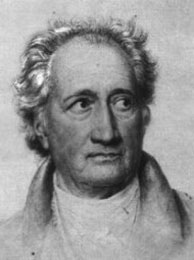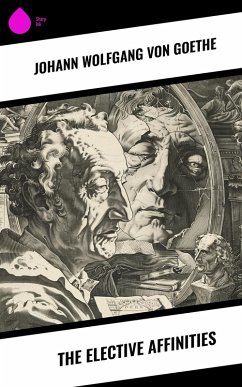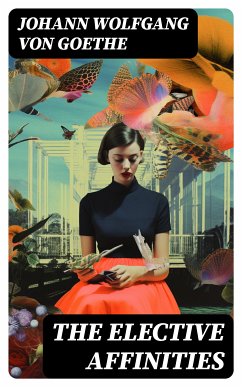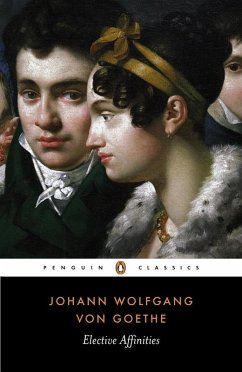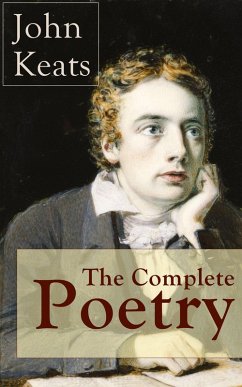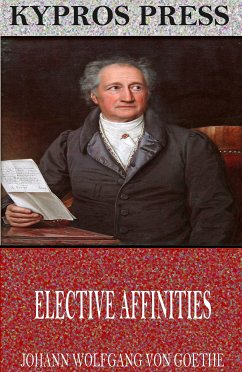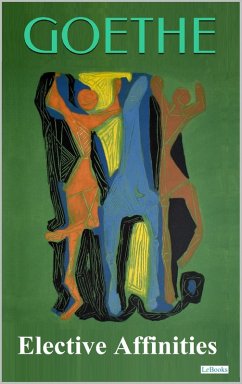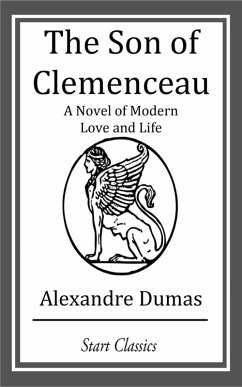
The Elective Affinities (eBook, ePUB)
Enriched edition. Exploring Love and Attraction in Romantic Era Germany
Kommentar: Lancaster, Erica / Redaktion: Good Press / Übersetzer: Froude, James Anthony; Boylan, R. Dillon
Versandkostenfrei!
Sofort per Download lieferbar
1,99 €
inkl. MwSt.
Weitere Ausgaben:

PAYBACK Punkte
0 °P sammeln!
In "The Elective Affinities," Johann Wolfgang von Goethe intricately weaves a narrative that delves into the complexities of human relationships through the lens of scientific metaphor. The novel employs the language of chemistry as a means to explore the dynamics of passion and attraction, drawing parallels between chemical bonds and human connections. Goethe's literary style reflects the ethos of the Sturm und Drang movement, characterized by emotional intensity and philosophical depth, which provides a rich context for understanding the transformative power of love and desire. With its prof...
In "The Elective Affinities," Johann Wolfgang von Goethe intricately weaves a narrative that delves into the complexities of human relationships through the lens of scientific metaphor. The novel employs the language of chemistry as a means to explore the dynamics of passion and attraction, drawing parallels between chemical bonds and human connections. Goethe's literary style reflects the ethos of the Sturm und Drang movement, characterized by emotional intensity and philosophical depth, which provides a rich context for understanding the transformative power of love and desire. With its profound explorations of moral ambiguity and the interplay between duty and passion, the narrative invites readers to reflect on the nature of choice and consequence in their own lives. Goethe, a towering figure of German literature and thought, was deeply influenced by the Enlightenment and Romanticism. His diverse pursuits in poetry, philosophy, and natural science culminated in a quest to comprehend the human condition. "The Elective Affinities," published in 1809, emerges as a vital expression of Goethe's preoccupation with individuality and the tumult of emotional experience, shaped by his own ventures into relationships and the philosophical inquiries of his time. This timeless exploration of love's inherent conflicts and the notion of 'elective affinities' will resonate with readers seeking both intellectual engagement and emotional depth. Ideal for those interested in the intersections between literature, philosophy, and science, this novel stands as a foundation for understanding romantic complexities and the moral dilemmas that define human connection. In this enriched edition, we have carefully created added value for your reading experience: - A succinct Introduction situates the work's timeless appeal and themes. - The Synopsis outlines the central plot, highlighting key developments without spoiling critical twists. - A detailed Historical Context immerses you in the era's events and influences that shaped the writing. - An Author Biography reveals milestones in the author's life, illuminating the personal insights behind the text. - A thorough Analysis dissects symbols, motifs, and character arcs to unearth underlying meanings. - Reflection questions prompt you to engage personally with the work's messages, connecting them to modern life. - Hand-picked Memorable Quotes shine a spotlight on moments of literary brilliance. - Interactive footnotes clarify unusual references, historical allusions, and archaic phrases for an effortless, more informed read.
Dieser Download kann aus rechtlichen Gründen nur mit Rechnungsadresse in A, B, BG, CY, CZ, D, DK, EW, E, FIN, F, GR, H, IRL, I, LT, L, LR, M, NL, PL, P, R, S, SLO, SK ausgeliefert werden.




